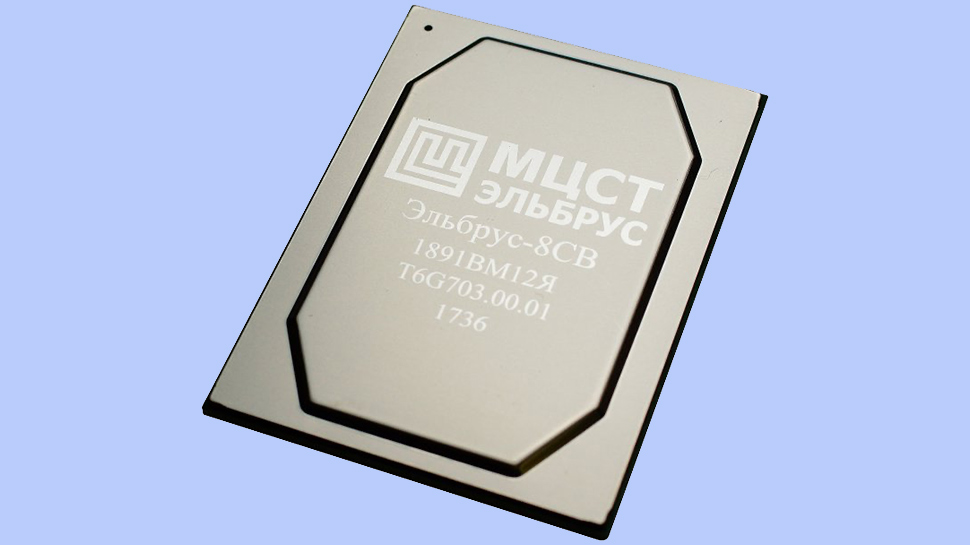Russian Chipmaker Preps to Develop 32-Core Elbrus Processors
MCST intends to develop 32-core VLIW CPUs for PetaFLOPS-class supercomputers.

Get Tom's Hardware's best news and in-depth reviews, straight to your inbox.
You are now subscribed
Your newsletter sign-up was successful
The Ministry of Industry and Trade of the Russian Federation has placed a bid to develop a 32-core processor based on the Elbrus VLIW-like architecture. The CPUs will be aimed at various applications, including servers, storage systems, and high-performance computing (HPC). The chip is set to be designed by the end of 2025 and will be made using 7nm or more advanced process technology.
Following various HPC-related restrictions that two U.S. administrations imposed on China in recent years, the development of high-performance server CPUs received major boosts in China, Europe, and Russia. China seems to have a multifaceted processor strategy that includes CPUs based on Arm, MIPS, RISC-V, x86, and even proprietary architectures. European companies mostly use Arm architecture, though they also have access to MIPS as well as RISC-V.
There are not many CPU designers in Russia, and the best known are Baikal Electronics, which uses Arm and MIPS for its client CPUs; KM211, which builds special-purpose CPUs, controllers, and FPGAs; and Moscow Center of SPARC Technologies (MCST), which designs CPUs based on its proprietary VLIW-like Elbrus architecture for CPUs aimed at HPC and mission-critical applications.
Since MCST is essentially a state-owned company, it is funded by the government, so the Ministry of Industry and Trade has to place formal bids before funding MCST's R&D projects. This is exactly what happened this month when the ministry placed a bid to develop a 32-core Elbrus-32C processor for about 7.4893 billion rubles ($98.7 million). MCST will have to formally submit its proposal by December 10, 2020.
At present, MCST is developing 12- and 16-core Elbrus processors projected to debut sometime in 2021, if all goes well. The company intends to finish the development of its 32-core Elbrus CPUS by late 2025.
Based on preliminary information about the 32-core Elbrus processor, the chip will feature at least 64 MB of cache, a six-channel DDR5 memory controller supporting at least 2 TB of memory, a bandwidth of at least 170 GB/s, and at least 64 PCIe 5.0 lanes and various AI accelerators.
32-core Elbrus processors will be used for servers, storage devices, and HPC systems used by scientists, aerospace agencies, and energy companies.
Get Tom's Hardware's best news and in-depth reviews, straight to your inbox.

Anton Shilov is a contributing writer at Tom’s Hardware. Over the past couple of decades, he has covered everything from CPUs and GPUs to supercomputers and from modern process technologies and latest fab tools to high-tech industry trends.